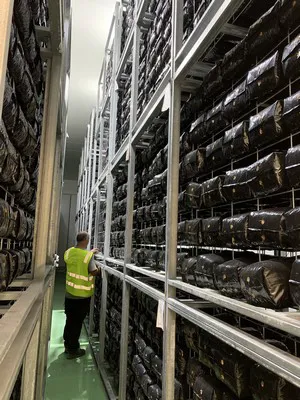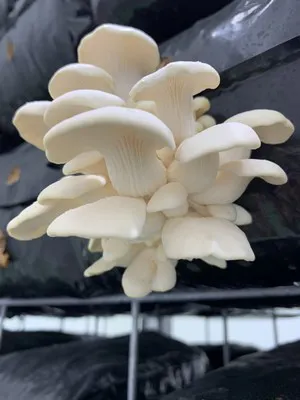One of Australia's most iconic car manufacturing plants in South Australia is set to become one of the largest exotic mushroom production facilities in the world.
Earlier this year, the Epicurean Food Group announced Holden's old vehicle painting plant in the Northern Adelaide suburbs will be transformed into a multi-million-dollar, first-of-its-kind, vertically integrated farm. National Sales and Marketing Manager, Dale Aitken says one of the main reasons for establishing this facility was to make it a whole food production facility; not just fresh mushroom production, but also mushroom-based products.
 "We are focused on creating food options with mushrooms," he said. "We will be making things like mushroom burgers, mushroom balls and mushroom sausages so that people will have alternate choices in the food that they get. Also, it will cater to low-allergen; things like gluten-free, nut-free, shellfish-free, soy-free. People will have an alternative in terms of vegetarian, flexitarian or vegan meals that are not specifically plant-based. We are not trying to be a meat substitute; we will be a mushroom choice. Our wholefood meals have a five-star health rating."
"We are focused on creating food options with mushrooms," he said. "We will be making things like mushroom burgers, mushroom balls and mushroom sausages so that people will have alternate choices in the food that they get. Also, it will cater to low-allergen; things like gluten-free, nut-free, shellfish-free, soy-free. People will have an alternative in terms of vegetarian, flexitarian or vegan meals that are not specifically plant-based. We are not trying to be a meat substitute; we will be a mushroom choice. Our wholefood meals have a five-star health rating."
Currently set on 4,000sqm, future growth plans will see the company expand into another building, and will occupy another 30,000sqm. Rather than the traditional Button, Swiss Brown or White button varieties, it will produce exotic varieties such as Oyster, Shiitake, Enoki, King Oyster and Lion's Mane, and several others including medicinal varieties. Mr Aitken says the company already has fresh product on the market distributed through Costa Group, which plan to expand into other retailers.
"Costa Group, a large player in the button mushroom market, say they are a highly consumed staple in Australia, but consumers need more of an introduction to exotic mushrooms," Mr Aitken said. "People see them and don't know what to do with them because they have a different texture, different taste and different feel. We aim to educate people so they understand better how to use the different varieties available. Exotic mushrooms are better suited to making meals as the traditional Buttons and Swiss Browns, don't hold their texture. On the other hand, varieties like Oyster and Shiitake suit better. There are lots of different uses for exotic mushrooms, but ultimately it is about having a facility that can make fresh mushrooms as well as value-add products. For example, if we have a low demand for fresh mushrooms in one week, we can instantly put them through the kitchen so nothing is wasted."
The facility is vertically integrated, going from the creation of substrate and spawn all the way through the production phase to the kitchen, where the products are made. The mushrooms are grown on racks on sustainable substrates, in stacker rooms that are lit, aerated and humidified.
 Another important boost for the industry is the flow on effects from localising production, because an estimated 85 per cent of Australia's exotic mushroom supply is imported.
Another important boost for the industry is the flow on effects from localising production, because an estimated 85 per cent of Australia's exotic mushroom supply is imported.
"For example, Shiitake is traditionally grown on hardwood logs which have been inoculated overseas, and grown here," Mr Aitken said. "So they are an overseas product which is finished here. We aim to employ 350 local people as we finish this project."
Mr Aitken says one of their other aims is growing the mushrooms in a sustainable way, using sustainable substrates like straw and packaging that is recyclable - and with the facility being in a suburban environment there will be no odour to disturb the urban residential community.
"We are also recycling our waste product back to farms to help with soil enrichment. We anticipate soon to be using the wastewater and substrate to create clean energy, and plastic waste to be upcycled using external commercial facilities.
For more information
Dale Aitken
Epicurean Food Group
Phone: 1300 44 94 31 (within Australia)
sales@efgroup.au
www.efgroup.au
